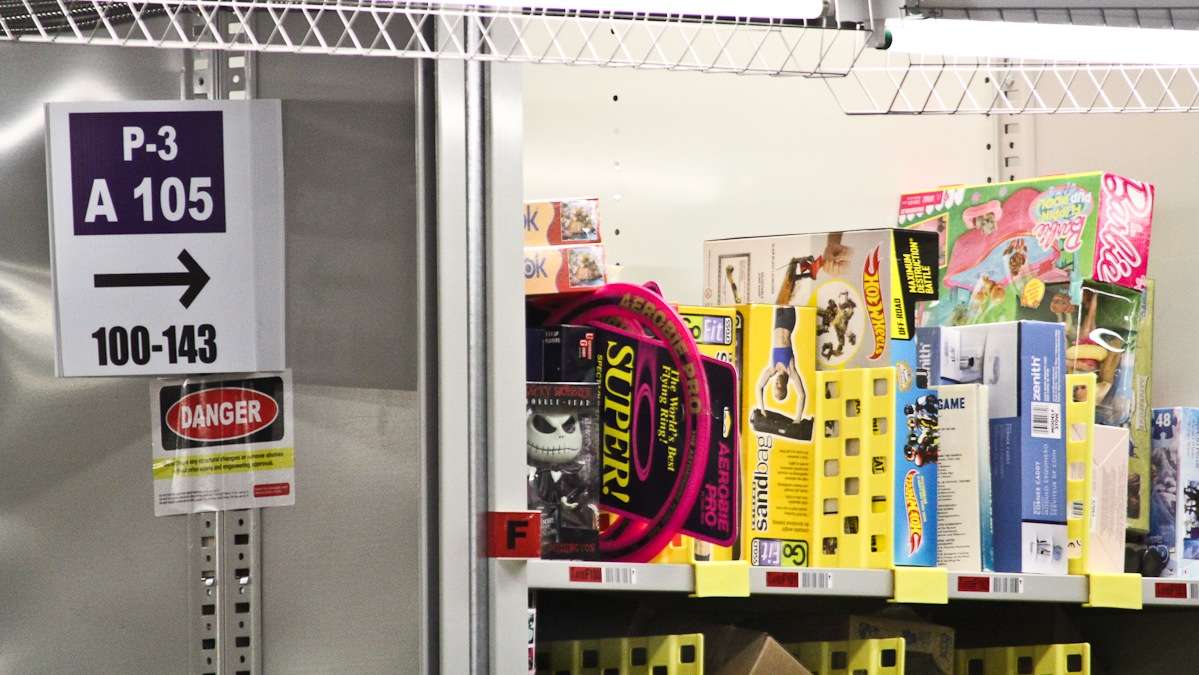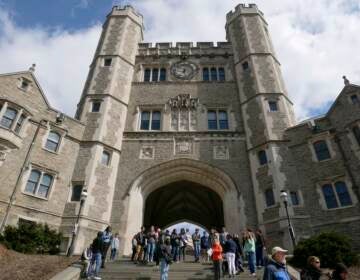Staffers push to unionize at Pa. School for the Deaf
-

-

-

-

-

-

-

-

-

-

-

Amazon's Fulfillment Center in Middletown
Lamenting a recent string of unilateral decisions by management, teachers and support staff at the Pennsylvania School for the Deaf filed a petition with the National Labor Relations Board last week in hopes of forming a union.
“We want to collectively bargain so that we can advocate for our students’ needs and speak our professional opinions and do so without a fear of reprisal,” said teacher Maelyn Entwistle, a five-year veteran at the school.
The action came as staffers grew frustrated with the school administration’s handling of recent policy shifts and layoffs, which organizers say hasn’t had the best interests of students at heart.
Union organizers at the school have affiliated with the Pennsylvania chapter of the American Federation of Teachers.
“What we’re really looking for is a contract that holds everyone accountable,” said Entwistle. “Right now we have a handbook that can be changed at any time, without input from the staff. What we’d really like is to have that say in what happens in the school so that we can do our jobs better, so that we can serve the students better.”
The 195-year-old Pennsylvania School for the Deaf serves approximately 200 students from across the region at its campus on School House Lane in Germantown. The school is one of four state-approved private chartered schools in the commonwealth that specializes in educating students who are deaf, hard of hearing or who use assistive technology.
Although the school is technically private, students attend tuition free.
Because the students have individualized education plans that call for intensive services which are often not offered in their local public school, the state covers the majority of costs, supplemented by funding from a student’s local school district, as well as private philanthropy.
In order to file a petition with the NLRB, union hopefuls must show they have the support of at least 30 percent of the staff. Without divulging an exact figure, organizers said they have collected enough signatures to far exceed that mark.
On Nov. 17, those signees asked the School for the Deaf board to voluntarily recognize their ability to collectively bargain – a request that’s been denied.
“Communication has been one-sided at PSD, and for the past few years, the staff has lost its ability to ensure that PSD maintains a diverse, safe and positive environment,” said Kim Stephan, the school’s IEP coordinator, in the union’s official press release.
School administrators, who could not be reached immediately for comment, have sent letters to faculty and staff in opposition to the union effort.
A NLRB hearing will be held Friday to determine exactly which staffers would be eligible for membership within the potential bargaining unit. Union organizers hope that approximately 150 staffers would be covered, a number that includes teachers, counselors, interpreters, therapists, one-to-one aides and classroom assistants, among others.
Upon completion of the hearing, the organizers and administrators will set an election date, which the NLRB says usually occurs within 30 days.
“A union that receives a majority of the votes cast is certified as the employees’ bargaining representative and entitled to be recognized by the employer as the exclusive bargaining agent for the employees in the unit,” according to the NLRB website. “Failure to bargain with the union at this point is an unfair labor practice.”
The organizers’ driving motivation is “being given a voice at the table,” not financial gain, said Entwistle.
“Salary has not come up once,” she said. “Benefits haven’t come up once. Not by a single person.”
According to the union’s official release, the effort has the support of some parents.
“I value the expertise and professionalism I have experienced with the teachers and support staff of PSD, and I want them to be able to advocate for my grandchild in an environment that is collaborative and free of oppression,” said Patricia Pomroy, a PSD grandparent.
WHYY is your source for fact-based, in-depth journalism and information. As a nonprofit organization, we rely on financial support from readers like you. Please give today.





